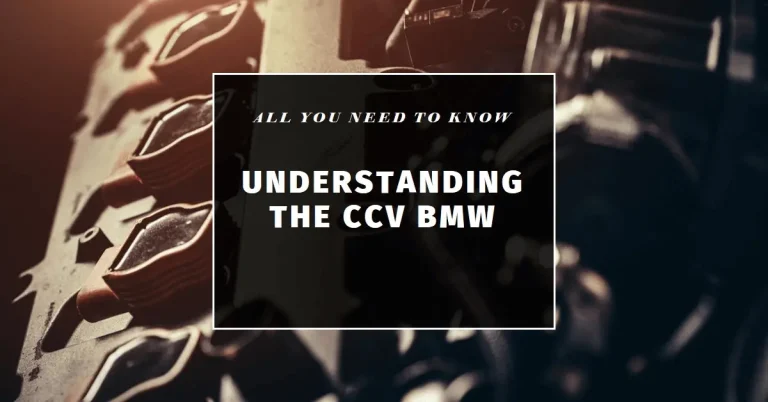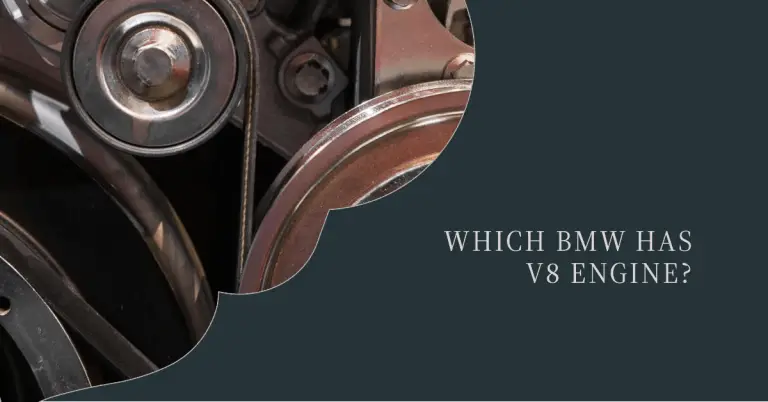How Much Does It Cost to Fix BMW Chassis Stabilization?
BMW’s advanced chassis stabilization system is designed to detect when your vehicle begins to lose traction or stability, engaging systems like ABS and traction control to keep your car under control. However, like any complex technology, glitches can happen, and the dreaded “Chassis Stabilization Malfunction” warning light may appear on your dashboard. When this happens, how much should you expect to pay for diagnosis and repairs?
The cost to fix BMW chassis stabilization can vary widely depending on the specific issue causing the problem. Minor sensor replacements may only be a few hundred dollars, while major component repairs like a transmission rebuild can run over $2000. However, with proper diagnosis and shopping around for quotes, you can find an affordable repair solution.
This article will break down the typical costs for common BMW chassis stabilization repairs, key factors that impact the repair bill, and tips to save money through maintenance and savvy servicing. Read on to get a better understanding of real-world costs so you can budget appropriately and get your BMW driving smoothly again.
Diagnosing the Root of the Problem
Before even getting a repair estimate, it’s crucial to properly diagnose the specific issue causing the chassis stabilization malfunction. This typically involves using a BMW-compatible OBD-II diagnostic scan tool to pull trouble codes that indicate the fault.
You can have this diagnostic scan done at a BMW service shop, which typically costs $100-$200 in labor fees. Alternatively, you can purchase your own OBD-II scanner tool designed to work with BMW models. This allows you to diagnose issues yourself in the future, with the upfront cost of the scanner starting around $200 for basic options up to $400 or more for advanced scanners.
Either way, the diagnostic scan will produce trouble codes that point to the root cause, like a faulty sensor or problems with the ABS module, transmission, or other stability-related components. Without this diagnosis, any repair quote will be a vague guess at best.
Common Causes of Chassis Stabilization Warnings
Some of the most common issues that trigger the chassis stabilization light in BMW models include:
Faulty ABS Sensors and Modules
Since the ABS system plays a crucial role in maintaining stability, worn or damaged ABS components are a prime suspect with chassis stabilization errors. Replacing a single wheel speed sensor can cost $150-$300 or more in parts and 1-2 hours of labor at around $100 per hour. If the ABS control module needs replacement, that could run $800-$2000 just for the part, plus 1-2 hours of work to install it.
Suspension Problems
Worn suspension components like ball joints, control arms, and bushings can degrade the chassis’ stability. Replacing just the control arms might cost around $300 in parts and labor. More extensive suspension repairs replacing shocks, springs, bushings and more can easily surpass $1000-2000 in costs.
Transmission Issues
While simple transmission solenoid repairs may cost only a few hundred dollars, arebuild or replacement of a faulty BMW automatic transmission can be $2000 or much more in parts and labor costs alone. This is one of the most expensive chassis stabilization repairs.
Brake System Components
Replacing worn brake pads and rotors is relatively affordable at $250-$500 or so in total parts and labor. Sticking calipers needing replacement may cost $200-$400 each. More extensive brake work like replacing the master cylinder or brake booster can run $500-$2000 depending on the specific parts and complexity of the repair.
As you can see, BMW chassis stabilization repairs run the gamut from a few hundred bucks for minor work to potentially over $2000+ for major transmission or brake repairs. Without getting a proper diagnosis, it’s impossible to know if you’re looking at the minimum or maximum end of the cost spectrum.
Key Factors That Increase Chassis Stabilization Repair Costs
Beyond the specific parts needing replacement, several other factors can bump up the total bill for BMW chassis stabilization repairs:
- Shop Hourly Rates – Dealerships often charge $125-$150 per hour or more, while independent shops range from $80-$100 per hour on average. This can significantly affect total labor costs.
- Model and Trim – Parts and complexity for say a base model 3-Series will be less than an M5 or X-Series SUV. High-performance variants can have higher repair bills.
- Location – Shops in major metro areas tend to have higher labor rates and tax rates than rural areas, impacting the overall costs.
- DIY vs Shop Repair – Doing repairs yourself saves heavily on labor fees, but requires technical skill and specialty tools.
- Maintenance History – Well maintained BMWs tend to have fewer catastrophic failures requiring expensive repairs.
- Repair Complexity – Simple sensor swaps will cost far less than major component replacements.
As with any automotive repair, getting multiple quotes is wise to find the best value. And choosing a shop experienced specifically in BMW service can yield benefits that offset slightly higher hourly rates.
Tips to Reduce Chassis Stabilization Repair Costs
Beyond smart shopping for repairs, there are a few other ways BMW owners can minimize the sting of chassis stabilization malfunctions:
- Perform preventative maintenance – By following the recommended maintenance schedule in your BMW’s owner’s manual, you can help prevent minor issues from escalating into major repairs.
- Do visual inspections – Periodically inspect components like suspension, axles, and brakes for early signs of wear that can be cheaply corrected before causing failures.
- Invest in a scanner tool – This allows you to diagnose issues as soon as a check engine light comes on, rather than ignoring it until you have a full-on failure. Catching problems early is cheaper.
- Learn DIY repairs – For simpler issues like sensor and brake pad replacements, doing it yourself rather than paying shop labor rates can save hundreds of dollars.
- Compare repair vs replace – At times it might be more cost effective to replace an aging vehicle rather than sink big money into repairs. This is especially true if you know you plan to get a new car soon anyway.
Knowing When to Call It Quits on Repairs
Putting money into chassis stabilization repairs on an older, high mileage BMW may make sense if you plan to keep it several more years. However, with major issues, there comes a point where repair costs exceed the remaining value of the vehicle. This is a sign it may be time to sell it or scrap it, rather than pour money into ever more expensive repairs.
Carefully weigh factors like mileage, maintenance history, repair costs, and BMW model year value when deciding if repairs are worth it. For example:
- A $3000 transmission rebuild on a 2006 BMW 7-series with 150k miles may not be worth it, given the low resale value even if perfectly running.
- However, that same $3000 repair on a 2016 model may be worthwhile, as it still has significant resale value you can recoup after the repair.
Setting a dollar limit on repairs relative to vehicle value can help avoid throwing money at endless repairs on cars that are simply no longer worth fixing.
Key Takeaways on BMW Chassis Stabilization Cost
Chassis stabilization repairs on BMW models vary wildly in cost depending on the specific issue that diagnostic trouble codes reveal. Minor sensor replacements may cost a few hundred dollars, while major transmission rebuilds can exceed $2000 in parts and labor. Carefully diagnosing problems rather than guessing, comparing repair quotes, and practicing preventative maintenance are all tactics to get repairs done affordably.
Understanding average BMW chassis stabilization repair costs along with the value of your particular model year can help make informed decisions if extensive repairs are truly worthwhile. In some cases, it may be smarter to put that money towards a replacement vehicle. But for well-maintained BMWs worth fixing, knowing repair costs in advance helps budget appropriately so you can confidently get your car back on the road.







